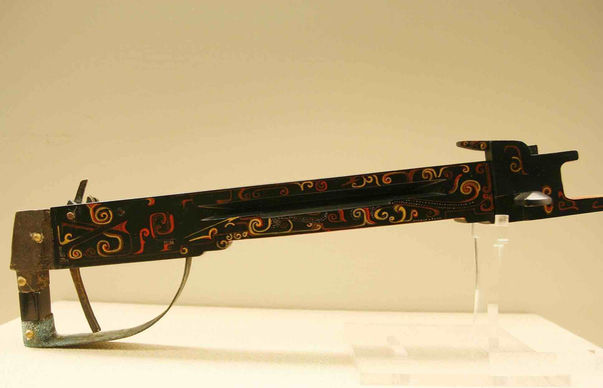Mohism and Mozi — Ancient Philosophy of Logic, Virtue, Science, and Ethics
Mohism was a mysterious and chivalrous philosophical school that delved into various fields such as society, politics, ethics, epistemology, logical reasoning, geometry, geometrical optics, statics, mechanics, mathematics, and more.
During the flourishing Hundred Schools of Thought in the Warring States Period (403 BC — 221 BC), Mohism emerged as a systematic philosophical organization, rivaling the prominence of Confucianism.
Mozi (or Mo Tzu), the founder and a distinguished scientist, stands out as the sole great philosopher in ancient Chinese history hailing from a peasant family rather than a noble lineage.
Most followers, the Mohists, primarily comprised knowledgeable scientists and practitioners of chivalrous swordsmanship, predominantly from the lower classes.
They vehemently opposed wars and Confucian ideas, including concepts of hierarchy, ancestry, and intricate etiquette.
The principles and technologies championed by Mozi and his followers are preserved in the book 'Mozi.'

Unearthed Bronze Carriage of the Warring States Period — Nanjing Museum
Mohism As A Mysterious and Chivalrous Organization
People within the Mohist organization were divided into two groups:
-
Mo Bian: scientists, theorists, thinkers, and debaters
-
Mo Xia: righteous swordsmen and warriors
They were subordinate to their leader, Ju Zi, and were extremely loyal, sincere, hard-working, skillful, and chivalrous.
Hence, it was an independent kingdom with strict discipline, strong beliefs, advanced scientific technologies and weapons, and countless brave and loyal warriors willing to sacrifice for their faith.
In the chaotic Warring States Period, Mohists participated in many wars, assisting small countries in defeating formidable enemies.
Unearthed Weapons of the Warring States Period (Photo by Dongmaiying)
Decline and Disappearance of Mohism
Centuries later, the powerful Kingdom Qin defeated other empires and established the centralized and unified Qin Dynasty (221 BC — 207 BC), which respected Legalism as the official dominant philosophy.
During these annexation wars, large numbers of extremely talented Mohist warriors sacrificed in the defensive battles helping small states.
In 134 BC, Emperor Liu Che promoted Confucianism, the long-term enemy of Mohism, as the official dominant philosophy.
Afterward, Mohism declined and left a few vestiges in Chinese history.
They lived in seclusion and never had the opportunity to regain their prosperity.
About 100 years ago, the last generation of Mohists sacrificed to protect their country from foreign invaders, and their chivalrous organization finally disappeared.
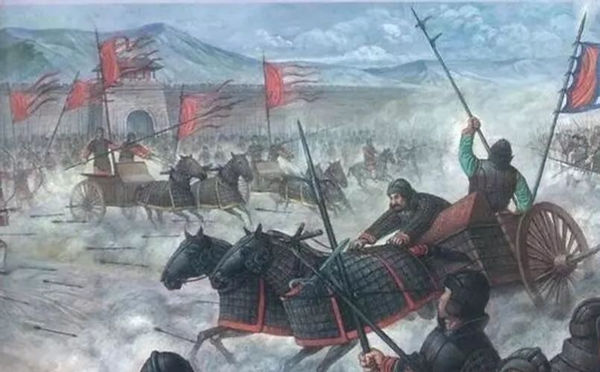
Main Reasons for the Vanishing of Mohism
Mohists came from civilians and always represented ordinary people’s interests.
They strongly believed in their faith and dedicated their lives to protecting the weak ones.
However, their ideas posed a significant threat to the centralized power and benefits enjoyed by emperors and the ruling class, advocating for principles such as equality and the election of emperors and officials.
Therefore, despite the Mohists' significant sacrifices and contributions, they were never accepted by the nobles and ruling class, even those from the small countries they had saved.
Another important reason was the difficulty of becoming a true Mohist, which required traits such as extreme bravery, diligence, frugality, and a willingness to sacrifice and contribute everything to their belief.
The Great Philosopher Mozi
Mo Di (about 476 BC — 390 BC), also respected as Mozi or Mo Tzu, was the founder of Mohism, one of the four major philosophical schools in the history of China.
He was a great philosopher, scientist, logician, strategist, ideologist, and educationist with high moral values.
He was the only great philosopher in ancient Chinese history who came from a civilian family and represented the interests of ordinary people.
Besides, he was also an exceptional, righteous pacifist and a true hero.

Early Life and Study Experiences of Mozi
Born into a peasant family, Mozi learned to read and write when he was little and used to do carpentry work for a living.
Later, he decided to learn more knowledge about society, ethics, and politics that can help people build a better world.
Therefore, Mozi left his family and learned Confucianism in another place.
However, most Confucianist ideas, such as hierarchy and ancestry, were hard to accept.
The ideal society that Confucius described was exactly what Mozi strongly opposed.

Well Trained and Brave Mohist Swordsman
Mozi's Establishment of the Mohism
Because of the complete disagreement with Confucianism, Mozi started to create and disseminate his ideology.
He represented people from lower classes, like peasants and handicraftsmen, from whom he gained large numbers of disciples and followers.
Soon, he established Mohism, a part-political and part-philosophical organization with strict rules and disciplines.
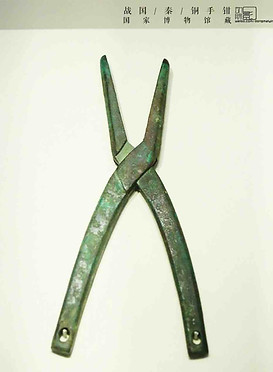
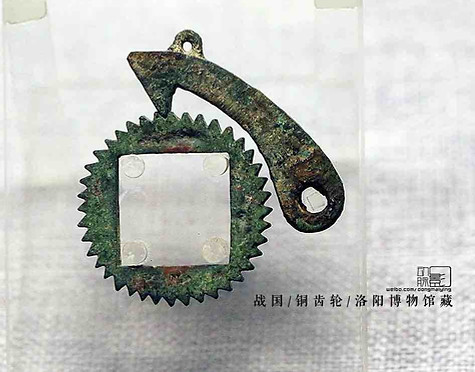
Bronze Pliers and Gear of the Warring States Period (Photo by Dongmaiying)
Mozi's Actions and Efforts to Stop Wars
Mozi had traveled to many places in China to try and persuade kings not to initiate wars.
Once, when he heard that the powerful Kingdom Chu was planning to attack a small country, he decided to stop this war alone.
He went to the Kingdom Chu by himself and told the king that he had terrific weapons to defeat anyone.
Afterward, Mozi showed the King of Chu his advanced defensive instruments and beat Chu's technicians nine times on the simulated battlefield.
His outstanding engineering achievements and courage successfully stopped this big war and saved countless lives.
But he did not succeed all the time, only by words.
So he and his Mohists participated in many wars to help weak countries defend against powerful invaders.
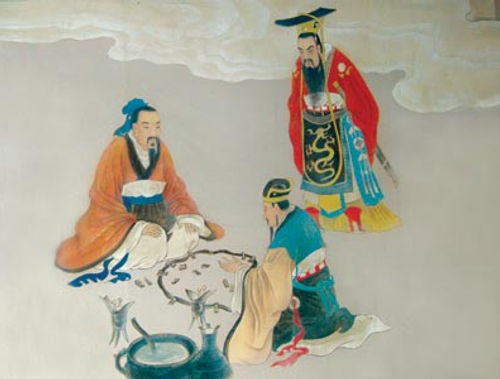
Mozi Presenting His Advanced Defense Technologies to the King of Chu
Unaccepted Hero Mozi and the Decline of His Ideology
Mozi’s mechanics and types of equipment for the wars were highly valued among those kingdoms.
His political ideas, on the contrary, were never welcomed or accepted by any monarch.
Among the significant figures in the history of China, Mozi was the first who entirely represented civilians’ interests.
This was an important reason that his philosophy had never been accepted by the ruling class, no matter how popular and respectful his Mohists were in the ordinary people’s world.
There’s no accurate record regarding when and how he left the world, but his advanced ideas and scientific achievements were well preserved and passed on for generations.

Inlaying Gold and Silver Bronze Crossbow (Nu Ji) of the Han Dynasty (202 BC — 220 AD) — Nanjing Museum (Photo by Dongmaiying)
Main Beliefs of Mozi and Mohist Doctrines
-
Value peace and equality; strongly oppose hierarchy and complicated etiquettes recommended by Confucianism.
-
Like the ancient sage kings, monarchs and ministers should all be elected based on their talent and morals, not their family names.
-
No one is born noble or humble.
-
People should equally love each other; this kindness should surpass family, blood bonds, or class origins.
This is a common benefit to the world.
-
Everyone should be practical and frugal, regardless of fortune or social status.
Elaborate, long, and complicated funeral ceremonies, valued by Confucianism, are a waste of time, money, and resources.
-
Denial of destiny.
People can get what they want through their efforts and hard work.
Destiny theory may wear down people’s wills and creativity, which is only beneficial for the ruling classes to maintain their dominance.

-
Heaven and nature have their thoughts; supernatural beings, immortal forces, and ghosts exist. People would be rewarded or punished based on their behaviors.
-
Military activities are for defending; attacks and invasions are illegal and should be avoided. Defending invasions of tyrants is right and just and should be supported.
Mozi wrote and left behind many practical defensive methods for protecting a city from attack, constituting a complete military defense system. This system includes manufacturing skills of weapons and equipment, construction and design of defensive structures on the city wall and canals, formation, and organization of warriors, etc.
-
Human beings' perceptions originate from the existence of material objects.
-
Space and time are both limited and unlimited, depending on different perspectives. The movement of things should be considered with time and space by observing their differences in time and their positions in space.
-
In the field of science, the Decimal System, circle, square, line, and symmetric center were detailed and documented.
Mozi and his followers researched and applied the lever principle, pinhole imaging, direct ray, light and shadow imaging, pulley, and sound transmission.
They also pointed out that force causes things to move, while resistance force makes objects stay still.

Pinhole Imaging Documented in Book Mozi
You Might Also Like:
Schools and History of Ancient Chinese Philosophy
History, Belief, and Essence of Taoism Ideology
Confucianism and Its Remarkable Philosophers
History and Development of Legalism in Chinese History
Brief Introduction to Chinese Mythology — Origin and Special Characteristics
Yin Yang and Taiji — Origin, Meaning, Symbol, and Utilization
Record and Count System in Ancient Chinese Culture (Tian Gan Di Zhi)
Chinese Astrology — Three Enclosures, Four Symbols, Twenty-eight Lunar Mansions

